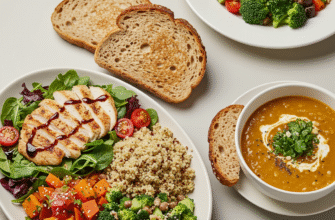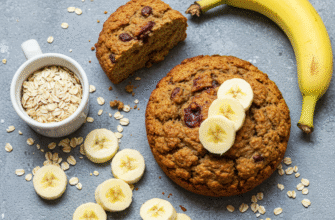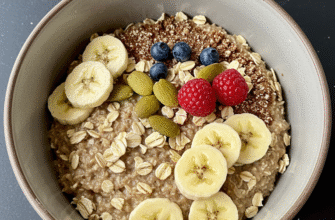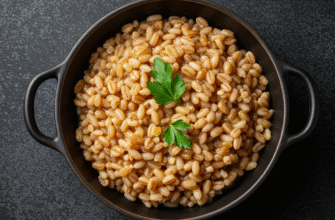Making changes to how we eat can feel like a big task, especially when convenience often dictates our choices. Processed foods are everywhere – they fill supermarket aisles, dominate fast-food menus, and often find their way into our kitchens without us even realizing it. While they certainly offer convenience, taking steps to reduce our reliance on heavily processed options can unlock a surprising number of benefits for our general sense of well-being. It’s not about aiming for perfection or eliminating every single item that comes in a package, but rather about making a conscious shift towards more whole, less manipulated ingredients.
Understanding What We Mean by ‘Processed’
Before diving into the benefits, it’s helpful to clarify what ‘processed foods’ generally refers to. Essentially, it’s any food that has been altered from its natural state. This is a very broad spectrum. Minimally processed foods, like pre-cut vegetables, roasted nuts, or canned tuna, have undergone simple processes for preservation or convenience and can still be part of a balanced diet. The main focus when talking about reduction is typically on highly processed or ultra-processed foods. These are items that often contain ingredients you wouldn’t typically use in home cooking – things like artificial colours, flavours, sweeteners, emulsifiers, and preservatives. They often bear little resemblance to their original ingredients and include things like sugary drinks, many packaged snacks (chips, cookies), ready-meals, processed meats, and certain breakfast cereals.
Reaping the Rewards: Why Cut Back?
Boosting Your Nutrient Intake Naturally
One of the most significant advantages of leaning away from heavily processed foods is the potential for a richer nutrient intake. Whole foods – fruits, vegetables, legumes, whole grains, lean proteins – are naturally packed with essential vitamins, minerals, fiber, and antioxidants in their original, complex forms. Processing, particularly high-level processing, can strip away some of these valuable components. While some processed foods are fortified with synthetic vitamins and minerals, it’s often argued that nutrients are best absorbed and utilized by the body when consumed from whole food sources, where they exist synergistically with other compounds. By choosing an apple over apple-flavoured snack bar, or grilled chicken over chicken nuggets, you’re generally getting a broader spectrum of naturally occurring nutrients.
Supporting Energy Levels Throughout the Day
Ever experienced that mid-afternoon slump after a convenient, but perhaps not very wholesome, lunch? Highly processed foods, particularly those high in refined sugars and simple carbohydrates, can cause rapid spikes in blood sugar levels, followed by equally rapid crashes. This rollercoaster effect can leave you feeling tired, irritable, and craving more sugary or processed items. Conversely, diets rich in whole foods provide complex carbohydrates, fiber, protein, and healthy fats. These components are digested more slowly, leading to a more gradual release of energy. This helps maintain more stable blood sugar levels, contributing to sustained energy and better focus throughout the day, reducing the likelihood of those dramatic energy peaks and troughs.
Better Digestive Harmony
Dietary fiber is crucial for a healthy digestive system, and it’s something that whole foods offer in abundance. Fruits, vegetables, whole grains, nuts, seeds, and legumes are all excellent sources. Fiber aids in regular bowel movements, helps feed beneficial gut bacteria, and contributes to a feeling of fullness. Many highly processed foods, however, have much of their natural fiber removed during manufacturing. Relying heavily on these low-fiber options can sometimes contribute to digestive discomfort or irregularity for some individuals. Shifting the balance towards more fiber-rich whole foods naturally supports better digestive function.
Encouraging Mindful Eating and Culinary Exploration
Reducing processed foods often goes hand-in-hand with cooking more meals at home and paying closer attention to ingredients. This shift can foster a greater appreciation for the taste, texture, and origin of food. It encourages you to experiment with herbs, spices, and different cooking methods, potentially enhancing your culinary skills and enjoyment of eating. Preparing your own food also gives you complete control over what goes into it – you decide the amount of salt, sugar, and fat. This process can be empowering and lead to a more mindful connection with your meals, moving away from passive consumption towards active participation in your nourishment.
Assisting with Weight Management
Highly processed foods are often designed to be hyper-palatable, meaning they taste incredibly good due to specific combinations of fat, sugar, and salt. This, combined with their often lower fiber and water content, can make them less satiating (filling) per calorie compared to whole foods. It can be easy to consume large quantities of these foods without feeling truly full, potentially leading to an overall higher calorie intake. Whole foods, typically being higher in fiber and water, tend to promote greater feelings of fullness, which can naturally help regulate appetite and support efforts to maintain a healthy weight. It’s not a magic bullet, but shifting the balance towards more satisfying whole foods can be a helpful strategy.
Important Note on Balance: Reducing processed foods doesn’t mean eliminating them entirely or striving for dietary perfection. Aim for gradual changes and focus on progress, not perfection. Many minimally processed foods offer convenience and nutrition. The goal is to shift the overall balance towards more whole, nutrient-dense options most of the time.
Simple Steps to Get Started
Making changes doesn’t have to be overwhelming. Here are a few ideas:
- Read Ingredient Lists: Get familiar with what’s in packaged foods. If the list is very long and full of unfamiliar chemical names, it’s likely highly processed.
- Cook More Often: Even starting with one or two more home-cooked meals per week can make a difference. Prepare simple dishes using fresh ingredients.
- Focus on Whole Ingredients: Base your meals around vegetables, fruits, lean proteins, and whole grains. Use these as your foundation.
- Swap Your Snacks: Replace packaged crisps or cookies with fruit, a handful of nuts, plain yogurt, or vegetable sticks.
- Hydrate Smartly: Choose water, plain tea, or coffee instead of sugary sodas, juices, and sweetened beverages.
- Shop the Perimeter: Supermarket layouts often place fresh produce, meats, and dairy around the outer edges, with more processed items filling the central aisles. Spending more time on the perimeter can help guide choices.
Long-Term Gains
Reducing your intake of heavily processed foods is less about restriction and more about embracing the vibrant flavours and nutritional benefits of whole foods. It’s a journey towards potentially feeling more energetic, supporting your digestive health, and developing a deeper appreciation for the food that fuels your body. By making small, sustainable changes over time, you can significantly enhance your overall eating pattern and contribute positively to your long-term well-being, one delicious, whole-food meal at a time.








